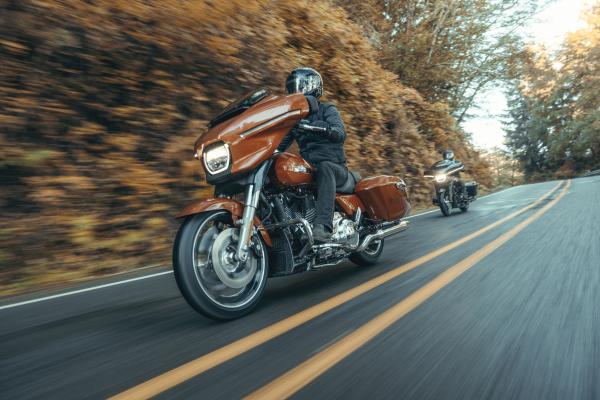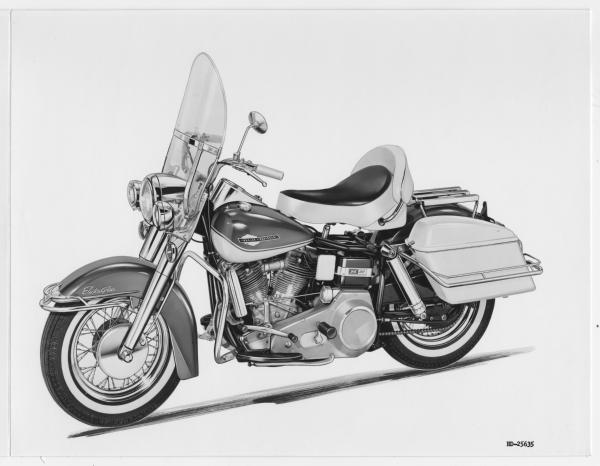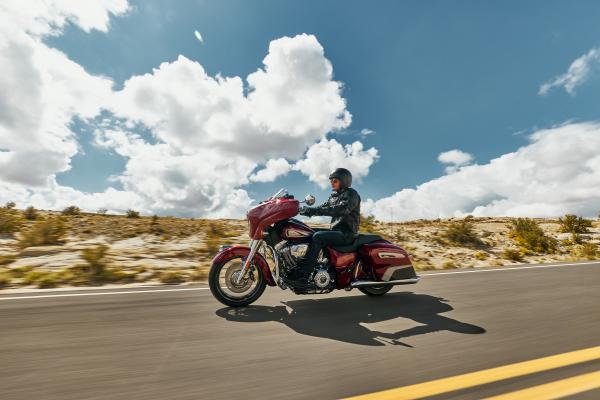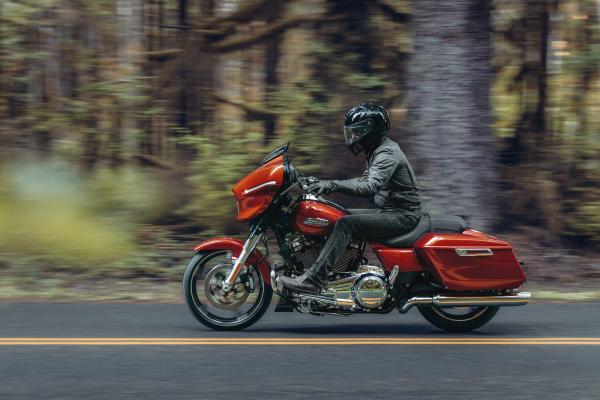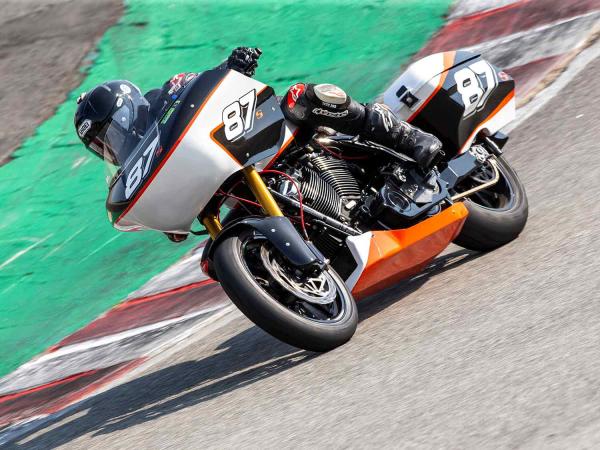A Short History of the Bagger Motorcycle
Americans love ’em, we barely understand them – here’s everything you need to know about this bike category

Member for
54 years 8 monthsThink ‘bagger’ and you probably think US-style cruiser with panniers such as the Harley-Davidson Street Glide, and you’d be right, and also about to click onto the next page…
But whoah one second! While baggers may be about as definitively American as bikes get (and therefore not necessarily your cup of tea), they’re also one of global motorcycling’s most significant categories, one that still dominates US sales charts, has developed its own dedicated magazines, custom shows and even, as demonstrated at the recent Goodwood Festival of Speed, its own race class (the King of the Baggers) and is an intriguing story in its own right. Here’s why:
The term ‘bagger’ is in truth a little muddled. Derived from bikes equipped with touring saddlebags, or panniers, some argue, on that basis, that they can be traced all the way back to the immediate post-World War II era.
At that time, folklore has it, demobbed GIs bought up army surplus Harley-Davidson WLAs (which were often equipped with rudimentary panniers), chopped or ‘bobbed’ them down to make them lighter, faster and more individual, rode around with a group of mates sometimes wearing their ex-USAAF leather bomber jackets compete with painted motifs and not only biker gang culture but ‘bobber’ bikes were born.
Harley’s street bikes began being available with optional soft ‘bags’ around the same time, progressing to Harley’s first hard panniers in the mid-‘50s on the Hydra then Duo Glide, although by that time ‘side cases’, usually soft, small versions, were common on many bikes – even T.E. Lawrence (of Arabia)’s Brough Superior had them back in the ‘20s!
Instead, the ‘bagger breakthrough’ arguably came with the successor to the Duo Glide, the electric starter-equipped 1964 Electra Glide (which again was available with hard panniers) or, more exactly, its 1969 incarnation, which was the first available with the optional ‘Bat Wing’ fairing – and thus the full dress bagger had landed.
Except… that’s not quite the bagger story, either. Although full-dressers like the ‘Glide (and subsequent rivals such as the Honda Gold Wing) are sometimes referred to as ‘baggers’, it’s still not quite the same as the modern interpretation.
Following the success of those ‘full-dressers’ a sub-category more specifically of ‘baggers’ – more lightweight touring cruisers with the bare minimum of hard panniers (but no top case) and a smaller touring screen – began to emerge.
The first, arguably, was Harley’s 1994 Road King, with soft bags and a plexiglass screen, although that had a decidedly retro vibe. But the idea of the more modern, custom ‘bagger’, a bike with the comfort and practicality of hard panniers and a small screen or fairing, but still with a strong ‘chopper’ image only really emerged in the mid-Noughties.
Although Harley had launched its first Street Glide back in 1984, it wasn’t a huge success (it was basically a more affordable ElectraGlide) and bore little relation to today’s version. Instead, it was the 2006 Street Glide which proved a game-changer. Designed by no less than Harley’s VP of Design himself, Willie G. Davidson, legend has it that the great man created it as it was the type of bike he himself wanted to ride.
And what was it? Essentially a ‘cut down’ ElectraGlide, with the screen chopped down and the top case removed to make it lighter, leaner and more stylish – without compromising its touring comfort too much.
The result, by appealing to both Harley cruiser fans (for its style) and tourer fans (for its practicality over distance) proved an instant sales sensation, spawned a host of imitators and, ultimately, the whole bagger lifestyle so dominant in the US which includes dedicated magazines, shows, websites and, today, the King of the Baggers racing series.
That 2006 machine (which had a fat 16inch front wheel), in turn led to the 2012 version (with 18incher and other changes), the first frame-mounted fairing Road Glide version, from 2010, and subsequent improvements to the chassis, engine, equipment and style which cemented Harley’s baggers at the top of the class.
The Street and Road Glides were also selected to spearhead Harley’s all-new, far more advanced ‘CVO’ platform for 2024.
Today, Harley’s current line-up contains six different ‘baggers’, all dating back to that original 2006 Street Glide; revived US rivals Indian offer six more; while, in the States at least, Suzuki (with its Boulevard 1500) and Kawasaki (with its Vulcan 1700) offer Japanese interpretations on the ‘bagger’ theme.
See? Told you ‘baggers’ were significant.
